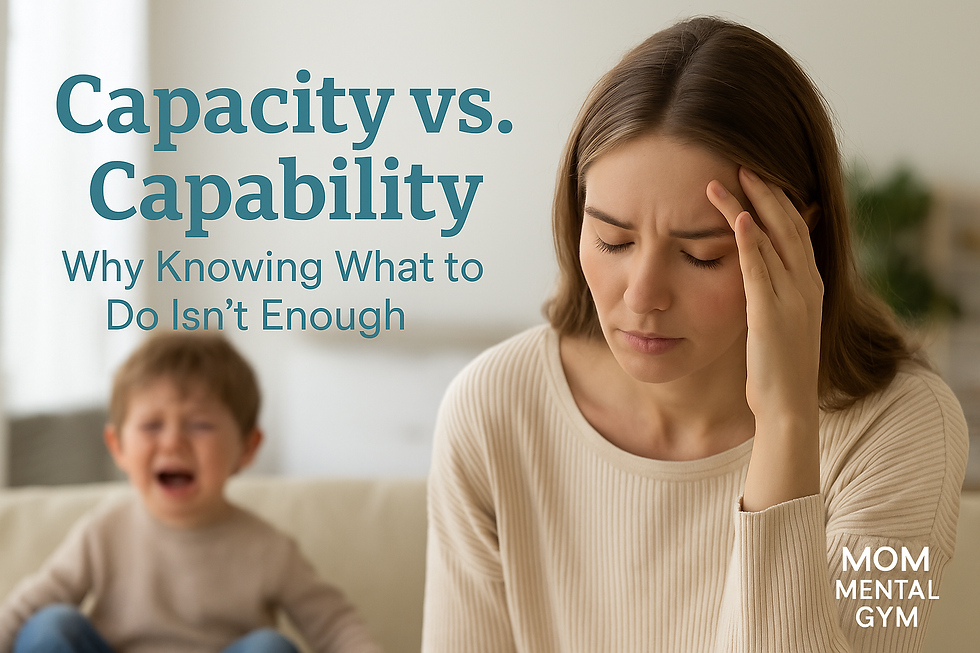The Blame/Shame Cycle: A Common Challenge for Parents of Children with Unique Needs
- Apr 21, 2023
- 2 min read
As parents, we all want what's best for our children. We work hard to provide for them, protect them, and guide them through life. But despite our best efforts, there are times when things don't go as planned, and we find ourselves stuck in a cycle of blame and shame.

Have you ever found yourself in a situation where you blame your child for your negative emotions and then shame yourself for feeling that way? It's a common experience and one that can be difficult to break free from.
So why does this happen, and what can we do about it?
The Blame/Shame Cycle
According to therapist and author Brené Brown, the blame/shame cycle is a common pattern that many of us fall into when we're feeling vulnerable or overwhelmed. It starts with blame, where we try to avoid negative emotions by placing the responsibility on someone else. For example, we might blame our child for our stress levels, saying things like, "If only they would listen to me, I wouldn't feel so frustrated."
But then comes the shame, where we turn that blame inward and start to feel like a bad parent. We might think things like, "Why can't I handle this? What's wrong with me?" This shame can be incredibly powerful and can lead to feelings of guilt, worthlessness, and even depression.
Breaking Free
So how can we break free from this cycle and avoid getting stuck in blame and shame?
The first step is to recognize when it's happening. When you find yourself blaming your child for your negative emotions, try to take a step back and notice what's really going on. Are you feeling overwhelmed, stressed, or anxious? Are there other factors contributing to your emotions?
Once you've identified what's really going on, try to process those emotions in a healthy way. This might involve talking to a therapist, journaling, or practicing mindfulness techniques like deep breathing or meditation. The key is to allow yourself to feel emotions without judgment or shame and to understand that it's okay not to have everything together all the time.
Another important step is to practice self-compassion. Instead of beating yourself up for not being a perfect parent, try to be kind to yourself and offer words of encouragement. Remember that parenting is hard and that everyone makes mistakes sometimes. The important thing is to learn from those mistakes and keep moving forward.
Finally, don't be afraid to ask for help. Whether it's from a partner, a friend, or a professional, reaching out for support can make a huge difference when you're feeling stuck in the blame/shame cycle. You don't have to go through this alone, and there's no shame in asking for help when you need it.
Conclusion
As parents, we all want to be the best we can be for our children. But the truth is, there will be times when we fall short when we make mistakes, and when we feel overwhelmed. It's okay to feel these things, and it's okay to ask for help. By breaking free from the blame/shame cycle and practicing self-compassion, we can be more present and engaged parents and model healthy emotional habits for our children to follow.



Comments